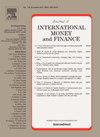ESG评级变化与股票收益
IF 3.3
2区 经济学
Q2 BUSINESS, FINANCE
引用次数: 0
摘要
我们分析了MSCI ESG评级分数变化对美国上市公司股票收益的影响。与ESG对长期价值的重要性相一致,我们发现股价会在很长一段时间内调整。具体来说,我们发现市场需要几个月的时间来反映数字评级的变化。使用6个月的持有期,评级下降后的年化负异常收益约为3. %。我们的业绩不受重大公司层面ESG新闻事件的影响。我们发现有证据表明,部分影响是由ESG的相对突出方面驱动的。与此相一致,我们发现只有E评级的变化对六个月的回报是重要的,而S和G的变化没有明显的影响。我们考虑了ESG评级变化影响股票收益的两种机制。我们发现,机构投资者在评级变化时改变持股是驱动我们业绩的主要机制,可持续指数修订具有次要影响。我们的研究结果表明,ESG评级的变化与资本市场相关。本文章由计算机程序翻译,如有差异,请以英文原文为准。
ESG rating changes and stock returns
We analyze the impact of MSCI ESG rating score changes on stock returns for U.S.-listed firms. Consistent with ESG’s importance for long-term value, we find that stock prices adjust over a prolonged period of time. Specifically, we find that it takes the market multiple months to reflect changes in numerical ratings. Using holding periods of six months, decreases in ratings are followed by annualized negative abnormal returns of approximately 3 %. Our results are not driven by significant firm-level ESG news events. We find evidence that part of the effect is driven by relatively salient aspects of ESG. In line with this, we find that only E rating changes are important for six-month returns while S and G changes do not have a discernible impact. We consider two mechanisms through which ESG rating changes could impact stock returns. We find that institutional investors changing their holdings around rating changes is the primary mechanism that drives our results, with sustainable index revisions having a secondary effect. Our results suggest that ESG rating changes are relevant for capital markets.
求助全文
通过发布文献求助,成功后即可免费获取论文全文。
去求助
来源期刊

Journal of International Money and Finance
BUSINESS, FINANCE-
CiteScore
4.20
自引率
4.00%
发文量
141
期刊介绍:
Since its launch in 1982, Journal of International Money and Finance has built up a solid reputation as a high quality scholarly journal devoted to theoretical and empirical research in the fields of international monetary economics, international finance, and the rapidly developing overlap area between the two. Researchers in these areas, and financial market professionals too, pay attention to the articles that the journal publishes. Authors published in the journal are in the forefront of scholarly research on exchange rate behaviour, foreign exchange options, international capital markets, international monetary and fiscal policy, international transmission and related questions.
 求助内容:
求助内容: 应助结果提醒方式:
应助结果提醒方式:


